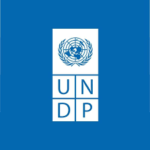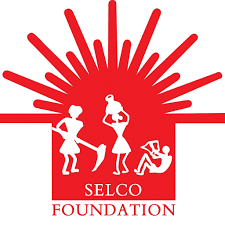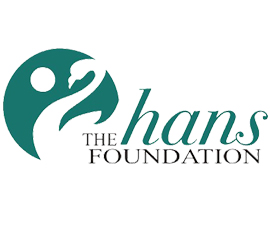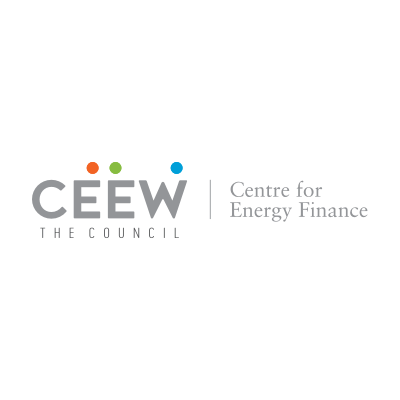
Website UNDP
Background
UNDP is committed to achieving workforce diversity in terms of gender, nationality and culture. Individuals from minority groups, indigenous groups and persons with disabilities are equally encouraged to apply. All applications will be treated with the strictest confidence.
UNDP does not tolerate sexual exploitation and abuse, any kind of harassment, including sexual harassment, and discrimination. All selected candidates will, therefore, undergo rigorous reference and background checks.
UNDP has been working in India since 1951 in almost all areas of human development. Together with the Government of India and development partners, we have worked towards eradicating poverty, reducing inequalities, strengthening local governance, enhancing community resilience, protecting the environment, supporting policy initiatives and institutional reforms, and accelerating sustainable development for all.
With projects and programmes in every state and union territory in India, UNDP works with national and subnational government, and diverse development actors to deliver people-centric results, particularly for the most vulnerable and marginalized communities. As the integrator for collective action on the Sustainable Development Goals (SDGs) within the UN system, we are committed to supporting the Government of India’s national development vision and priorities and accelerating the achievement of the SDGs for the people and the planet.
UNDP India’s current Country Programme, 2018-2022, is in its final year of implementation. Our new Country Programme (2023-2027), which comes into effect in 2023, builds on our prior work and aims to provide an integrated approach to development solutions in three strategic portfolios:
- Strong, accountable and evidence-led institutions for accelerated achievement of the SDGs
- Enhanced economic opportunities and social protection to reduce inequality, with a focus on the marginalized
- Climate-smart solutions, sustainable ecosystems and resilient development for reduced vulnerability
South-South cooperation, gender equality and social inclusion are promoted across the pillars. The programme is supported by a framework of renewed partnerships and blended finance solutions, strategic innovation and accelerator labs, and data and digital architecture.
You are invited to join a team of future-smart development professionals to support India in achieving the national and globally agreed goals. As part of the UNDP team, your focus will be to work with diverse stakeholders to find country-specific solutions that lead to sustainable development and reach those furthest behind first.
More than half of all livelihoods in India is primarily dependent on agriculture. A massive 54.6% of the total workforce is engaged in agricultural and allied sector activities and 57% of the rural households are directly dependent on agriculture for their livelihoods. However, the agricultural sector is facing various challenges like small landholding, declining productivity, rising input costs, declining farm income, the adverse impact of climate change, and decline in the percentage share of workers engaged in the agriculture sector. Agricultural production shocks have huge social and financial repercussions, impacting rural income levels, Gross Domestic Product (GDP) and poverty rates.
The Government of India’s flagship schemes Pradhan Mantri Fasal Bima Yojana (PMFBY) and KCC/MISS have become important tools to strengthen the resilience of Indian farmers. The schemes ensure maximum benefits for the farmers by providing financial risk protection against natural calamities and catastrophic events including pests, climate uncertainties and environmental shocks. Apart from providing comprehensive risk coverage for the entire crop cycle, PMFBY also enables direct claim transfer into farmers’ accounts through e-remittance. Additionally, to address agrarian distress, Kisan Credit Card/ Modified Interest Subvention Scheme (MISS) was introduced by the Government of India to provide cheap and hassle-free credit for millions of farmers and to ensure continued investment into agriculture to bring in mechanisation, modernise agriculture practices and eventually enhance productivity.
UNDP’s Country Programme Document (2023-2027) intended outcome 2 states that “By 2027, people will benefit from and contribute to sustainable and inclusive growth through higher productivity, competitiveness and diversification in economic activities that create decent work, livelihoods, and income particularly for youth and women”. UNDP leverages its expertise in systems strengthening to support the Ministry of Agriculture through setting up of Central Program Management Unit (CPMU) for the implementation of PMFBY and KCC, to improve institutional and programme responsiveness, increase coverage and better access among marginalised and excluded farm households, offering innovative measures and support mechanisms for Agri-value chain financing, risk management and reduced crop loss
for the rural population in India. The PMU will also focus on providing Capacity Building and Training support to participating state-level government departments involved in PMFBY and KCC and advancing the scheme among new states for improved uptake.
Duties and Responsibilities
The Data Analytics and Strategic Insights Analyst will work under the overall guidance and supervision of the National Programme Director-TSU. S/He will ensure engagement of all direct stakeholders and delivery of project objectives, in coordination with the Joint Secretary & CEO, DoA&FW, MoA&FW when needed.
- Work closely on the National Crop Insurance Portal and Data Management processes to maintain a National Database on Insurance underwriting and Claims for PMFBY and RWBCIS.
- Assess quality of data available and propose solutions to enhancements its quality thereof. Design and implement analytical platform to perform various data analysis projects by stakeholders.
- Perform risk-based and crop modelling to assist States in formulating optimal Scheme notification including Pricing, Clustering and other Risk Management aspects.
- Assist implementing agencies/ State TSUs in developing their own analytical practice to improve scheme design and operational delivery.
- Review current policies and operational processes to identify areas of improvement and build strategies towards improving service delivery by various stakeholders and ensuring maximum benefit to Scheme beneficiaries.
- Design and implement Proof of Concept (POC) for various strategic initiatives proposed.
- Identify project delivery issues and ensure effective coordination of project resources.
- Provide timely inputs for the timely submission of progress reports, as required by UNDP and the Ministry of Agriculture.
- Perform any other task consistent with the level of the post and/or assigned by the National Programme Director – TSU.
Competencies
Core Competencies
- Achieve Results: LEVEL 2: Scale up solutions and simplifies processes, balances speed and accuracy in doing work.
- Think Innovatively: LEVEL 2: Offer new ideas/open to new approaches, demonstrate systemic/integrated thinking
- Learn Continuously: LEVEL 2: Go outside comfort zone, learn from others and support their learning
- Adapt with Agility: LEVEL 2: Adapt processes/approaches to new situations, involve others in change process
- Act with Determination: LEVEL 2: Able to persevere and deal with multiple sources of pressure simultaneously
- Engage and Partner: LEVEL 2: Is facilitator/integrator, bring people together, build/maintain coalitions/partnerships
- Enable Diversity and Inclusion: LEVEL 2: Facilitate conversations to bridge differences, considers in decision making
Cross Functional & Technical competencies.
Digital & Innovation
- Data analysis: Ability to extract, analyse and visualize data (including Real-Time Data) to form meaningful insights and aid effective decision making.
- Data privacy and digital ethics: Knowledge of ethical usage of digital technology (e.g. AI, robotics, automation) and data. Ability to assess ethical implications when using, combining or sharing data, when building or implementing AI systems, and when advising on robotisation and automation etc. Ability to design privacy protocols to ensure data is protected and used for legitimate purposes without unnecessary privacy risks.
- Data engineering: Ability in programming languages such as SQL, Python, and R, be adept at finding warehousing solutions, and using ETL (Extract, Transfer, Load) tools, and understanding basic machine learning and algorithms.
- Data governance: Knowledge of data science, skills to develop data management tools, organize and maintain databases and operate data visualization technologies.
- Behavioural insights: Knowing when it is appropriate to use behavioural insights, having theoretical knowledge and basic understanding of principles of human behaviour; being aware of both the benefits and limitations of Behavioural Insights and adhere to ethical standards and guides when using them. Being able to define specific behavioural goals (what to change), explore and understand barriers and contextual factors to desired behaviours, use principles from behavioural science to generate ideas for nudges and interventions, use experimental methods to improve ideas (prototyping) or evaluate impact (trials). Use these results to develop a scaling strategy for interventions that work or inform policy design.
- Data literacy: Understand the potential as well as the limitations of using data driven innovation.
- Ability to use a mix of data sources (quantitative, qualitative or real-time techniques) to develop understanding, identify patterns to inform decision making or identify opportunities for further exploration.
- Tech literacy: Ability to apply new digital tools or adapting their original use to create new insights, fresh perspectives or develop solutions. Understand the potential as well as the limitations of certain technological developments; being able to identify how technology can add value when it’s used as a “”means to an end”.
Required Skills and Experience
Education:
- Bachelor’s Degree OR Masters in Statistics/ Economics / Business Analytics/ Business Administration, or equivalent.
Experience:
- Minimum 4 years’ (Bachelor’ Degree) or 2 years (Master’ Degree) of demonstrable experience in analysing large datasets, specifically related to non-life insurance sector.
- Relevant Experience at the national level working with Governments and private entities in the insurance sector.
- Additional Insurance qualification from institutes such as Insurance Institute of India / National Insurance Academy, or equivalent, shall be an advantage.
- Additional years of demonstrable experience in analyzing large datasets, specifically related to non-life insurance sector.
- Two to four years of experience in the field of crop insurance.
- Relevant experience of working at the national level with Government and/or Private Entities, in the insurance and/or reinsurance sector.
- Progressively responsible roles in providing strategic inputs to senior management for new projects to achieve organisational objectives.
- Proven experience in working with and managing projects with multiple stakeholders including Central and/or State Government / International Agencies.
Required skills:
- Strong integrity and ethical standards.
- Promotes the Vision, Mission, and Strategic Goals of the organization.
- In-depth knowledge of Agriculture Insurance, product design, indemnity-based insurance, index-based insurance products, national policies and existing schemes, regulatory laws related to crop insurance, related concepts, policies, and practices.
- Broad based knowledge across cross cutting thematic areas such risk management, current rural insurance and finance schemes, outreach to insurers and implementing agencies, procurement procedures, environmental and social safeguards.
- Knowledge of legislative, legal and regulation structure in place with respect to crop insurance in India, will be an advantage.
- Demonstrates substantive and technical knowledge to meet responsibilities and requirements of the post with excellence.
- Knowledge and capability to handle strategic planning, results- based management, and reporting.
- Good communication skills.
- Ability to carry out research and communicate strategic advice that guides decisions on strategic programme directions.
- Ability to tailor and present information to diverse audiences using a variety of communication delivery methods (e.g., written, electronic, oral, interpersonal), including documentation.
- Good interpersonal skills and ability to establish and maintain effective partnerships and working relations with people in a multi-
- cultural, multi-ethnic environment with sensitivity and respect for diversity.
- Demonstrated skills in connecting with a wide range of stakeholders viz. insurance agencies, farmer organizations, state agencies, etc.
- Ability to lead consultative meetings and provide training at national and state level with partners and senior stakeholders to identify priorities and manage the timely delivery of project activities.
- Ability to consistently deliver results (both individual and as part of a team), even under difficult circumstances.
- Demonstrates excellent work/project planning skills.
- Openness to change and the ability to manage complex, ever- changing environments.
- Candidates with prior experience in managing team of 4-5 persons, will be preferred.
- Candidates with prior experience of providing technical advisory.
services in the insurance sector, will be preferred.
Language Requirement:
- Excellent oral and writing skills in English and Hindi
To apply for this job please visit estm.fa.em2.oraclecloud.com.





